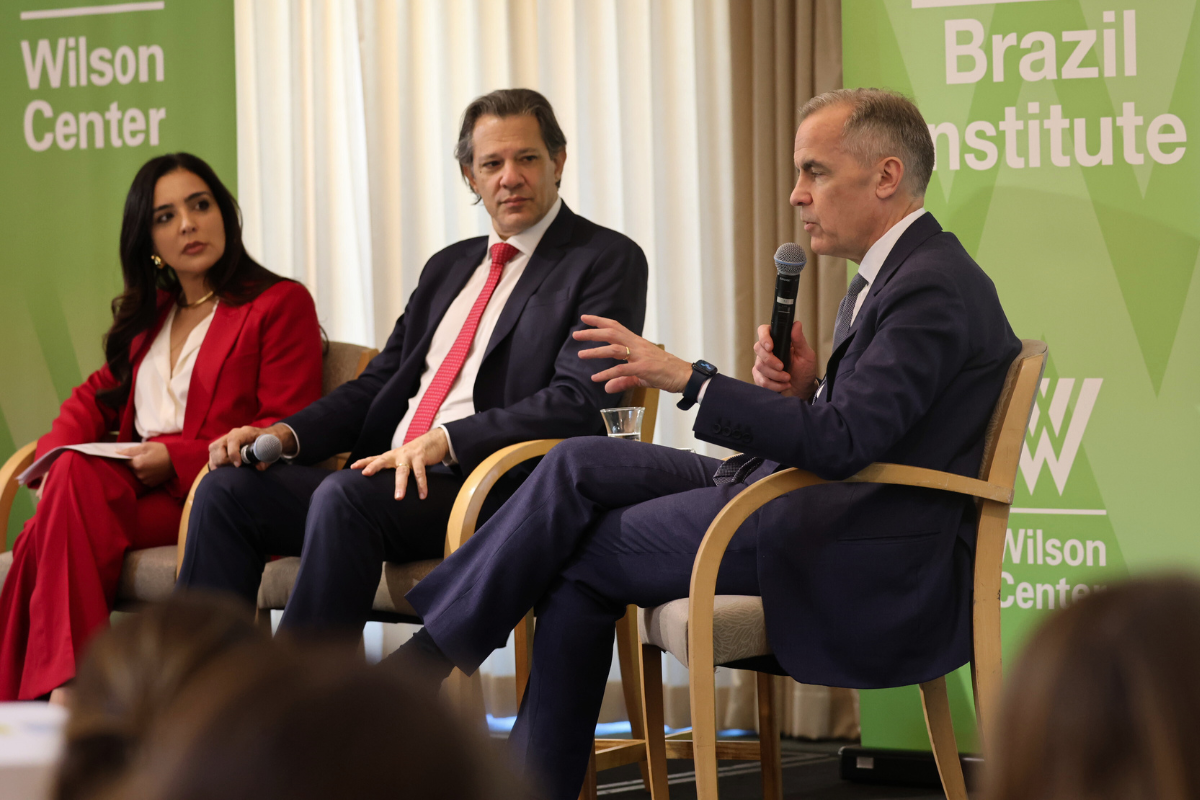Brazil is reasserting its leadership on the global stage in a domain where it has historically been a leader: climate action. This leadership was prominently displayed at this week’s G20 Spring Meetings in Washington, where Brazil steered pivotal discussions on climate finance and sustainable development.
Amid escalating geopolitical conflicts and resurgent old rivalries, the significance of the G20 as a forum for global dialogue is more crucial than ever. The group’s influence spans a wide range of critical issues, from agriculture to anti-corruption, emphasizing the necessity of international cooperation to tackle global challenges.
The “Sustainable Finance to Boost Impact” session — a collaborative effort led by the Wilson Center, the Institute for Climate and Society, and the Atlantic Council — showcased Brazil’s proactive role. Contributions from the Brazilian Finance Minister, Fernando Haddad, and Mark Carney of the Glasgow Financial Alliance for Net Zero highlighted the urgent need for innovative approaches in climate finance.
Experts from institutions like the Green Climate Fund and the Asian Infrastructure Investment Bank participated in panel discussions, emphasizing...


 Search
Search






































